Hospitality and Service Industry: Addiction and Mental Health
Hotels, restaurants, resorts, theme parks … the hospitality and service industry is full of fun and excitement for its customers. But the workers who provide that fun are susceptible to stress, mental health issues, and substance use disorders.
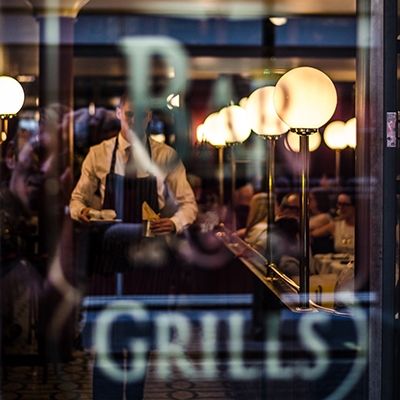
Hospitality and Service Industry: Addiction and Mental Health
Hotels, restaurants, resorts, theme parks … the hospitality and service industry is full of fun and excitement for its customers. But the workers who provide that fun are susceptible to stress, mental health issues, and substance use disorders.
Workers in the hospitality and service industry face unique challenges in treating their mental health and addiction.
Anyone familiar with the demands of the hospitality industry will confirm that it is no walk in the park. To cope with the challenges of the job, employees often turn to drugs and alcohol, forming a habit that can graduate into addiction.
While restaurant workers juggle many orders and the egos of impatient customers, hotel servers don’t have things much easier. These workers are at the beck and call of lodgers/visitors, and are required to display professionalism at all times.
Reflecting the strain of this industry, hospitality workers are recognized as the largest users of drugs and alcohol in the American workforce. A 2015 study estimated 19.1% of these employees engage in illicit drug use within a month.
The hospitality industry is the biggest employer of labor—as of 2020, 13.13 million people were employed within the sector. These workers are however at high risk of substance abuse without the right care available.
Substance use among hotel workers
When guests enjoy a pleasant stay at a hotel, it’s easy to overlook the amount of work that makes the experience possible. Hotel staff clean rooms, carry bags, cook, deliver meals, maintain public areas, lifeguard pools, and tend to administrative duties. They cater to the needs of demanding guests, which often includes serving food and alcoholic beverages.
The hospitality industry is a work hard-play hard environment, and hotel workers often relax with alcohol, on and off the clock. Reportedly, 12% of employees in hotels and restaurants drink in what is considered a pattern of “heavy use” (five or more alcoholic beverages within 2 hours, five days in a row). These drinks are taken during or after shifts, alone, or in the company of other colleagues.
While other jobs may frown at workers drinking on the job, the grueling, 24/7 nature of hotel work often causes managers to turn a blind eye. The proximity to alcohol and its acceptance during work hours make for a dangerous combination.
Another danger is the physically demanding nature of many hotel jobs. This may lead workers to use drugs either to stay alert through their shifts or to deal with chronic pain from physical exertion.
Substance use among restaurant staff
Alcohol is a cornerstone of the restaurant industry, with an estimated 30% of revenue coming from alcohol sales. But while customers may enjoy the drinks at their favorite locations, the constant presence of alcohol can normalize heavy drinking for workers.
The restaurant industry is unique in that at many venues servers, cooks, bartenders, and other workers may show up intoxicated without anyone batting an eye. In some bars and restaurants, employees may even help themselves to free-flowing alcohol.
There is also the time-honored tradition of the shift drink. Here, workers enjoy a solo or group drink at the end of a shift. With 15% of workers in the hospitality industry suffering from alcohol-related illnesses, it may be possible to draw a direct link to the drinking culture enabled by the workplace.
Restaurant workers are often underpaid and overworked, dealing with fast-paced work and demanding customers. Many rely on alcohol and other substances to take the edge off. One report showed that 16.9% of workers in the accommodation and restaurant industry use illicit drugs, the highest out of all industries surveyed.
Concerns with seeking help for addiction
Despite being part of an industry that is especially susceptible to addiction and alcoholism, hospitality workers face barriers to getting help for substance use. These include:
Limited resources
Cooks, servers, waitstaff, housekeepers, and other hospitality workers provide essential services, as the pandemic highlighted. However, compensation doesn’t always reflect the importance of their work. Simply put, hospitality workers may avoid seeking substance use treatment because they cannot afford it.
Fear of isolation
While using alcohol and drugs is very common, admitting one has a problem with them is different. Many people who are struggling with their drinking or drug use hide it out of fear of stigma. And in a hard-drinking, hard-partying work culture, hospitality workers may avoid getting help because they fear stickit out as the “weird” or “boring” one. They worry they may become isolated or treated differently at work.
Poor job security
The hospitality industry has a low barrier to entry and very frequent staff turnover. If a worker takes time off for rehab, they may worry that they won’t have a job to come back to. This is exacerbated by the fact that many in the service industry don’t qualify for FMLA, either because they aren’t given enough hours or because their employer doesn’t have 50 or more employees.
Frequent contact with drugs and alcohol
A hospitality worker may hesitate to get help because their work environment makes it seem futile. If they believe that after getting assistance, they will be returning to the same workplace, rife with alcohol and substances, long-term recovery can appear difficult to maintain.
Substance Use in the Hospitality Industry
When guests enjoy a pleasant stay at a hotel, it’s easy to overlook the amount of work that makes the experience possible. Hotel staff clean rooms, carry bags, cook, deliver meals, maintain public areas, lifeguard pools, and tend to administrative duties. They cater to the needs of demanding guests, which often includes serving food and alcoholic beverages.
The hospitality industry is a work hard-play hard environment, and hotel workers often relax with alcohol, on and off the clock. Reportedly, 12% of employees in hotels and restaurants drink in what is considered a pattern of “heavy use” (five or more alcoholic beverages within 2 hours, five days in a row). These drinks are taken during or after shifts, alone, or in the company of other colleagues.
While other jobs may frown at workers drinking on the job, the grueling, 24/7 nature of hotel work often causes managers to turn a blind eye. The proximity to alcohol and its acceptance during work hours make for a dangerous combination.
Another danger is the physically demanding nature of many hotel jobs. This may lead workers to use drugs either to stay alert through their shifts or to deal with chronic pain from physical exertion.
Alcohol is a cornerstone of the restaurant industry, with an estimated 30% of revenue coming from alcohol sales. But while customers may enjoy the drinks at their favorite locations, the constant presence of alcohol can normalize heavy drinking for workers.
The restaurant industry is unique in that at many venues servers, cooks, bartenders, and other workers may show up intoxicated without anyone batting an eye. In some bars and restaurants, employees may even help themselves to free-flowing alcohol.
There is also the time-honored tradition of the shift drink. Here, workers enjoy a solo or group drink at the end of a shift. With 15% of workers in the hospitality industry suffering from alcohol-related illnesses, it may be possible to draw a direct link to the drinking culture enabled by the workplace.
Restaurant workers are often underpaid and overworked, dealing with fast-paced work and demanding customers. Many rely on alcohol and other substances to take the edge off. One report showed that 16.9% of workers in the accommodation and restaurant industry use illicit drugs, the highest out of all industries surveyed.
Concerns with seeking help for addiction
Cooks, servers, waitstaff, housekeepers, and other hospitality workers provide essential services, as the pandemic highlighted. However, compensation doesn’t always reflect the importance of their work. Simply put, hospitality workers may avoid seeking substance use treatment because they cannot afford it.
While using alcohol and drugs is very common, admitting one has a problem with them is different. Many people who are struggling with their drinking or drug use hide it out of fear of stigma. And in a hard-drinking, hard-partying work culture, hospitality workers may avoid getting help because they fear stickit out as the “weird” or “boring” one. They worry they may become isolated or treated differently at work.
The hospitality industry has a low barrier to entry and very frequent staff turnover. If a worker takes time off for rehab, they may worry that they won’t have a job to come back to. This is exacerbated by the fact that many in the service industry don’t qualify for FMLA, either because they aren’t given enough hours or because their employer doesn’t have 50 or more employees.
A hospitality worker may hesitate to get help because their work environment makes it seem futile. If they believe that after getting assistance, they will be returning to the same workplace, rife with alcohol and substances, long-term recovery can appear difficult to maintain.

Signs of Addiction and Dependence
Alcoholism and addiction are common—sometimes even expected—hazards of the hospitality industry. In 1993, one in four workers in the US hospitality industry reported seeing a co-worker use drugs and alcohol on the job. This very prevalence can make it harder to spot when substance use becomes a problem.
Some symptoms of addiction to be aware of are:
- There is a constant fixation on drugs or alcohol
- Work or personal life suffers from the habit
- Larger amounts have to be consumed for a high
- Difficulty sleeping becomes normal
- Dizziness or even depression occurs when the high wears off
Benefits of receiving addiction treatment
The objections and obstacles listed above are valid, but they can be overcome. While the efficacy of addiction treatment varies quite a bit from program to program, there are more options and more kinds of support available now than ever before.
Inpatient care can be expensive, as well as requiring time away that hospitality workers can’t get. But there are outpatient and telehealth services available. These are both significantly more affordable than inpatient treatment. Telemedicine is especially flexible for workers who don’t have consistent schedules. It also answers concerns about privacy, since people who use telemedicine from home don’t have to tell anyone why they’re going away. Research has shown no significant differences between in-person and telemedical treatments.
Hospitality workers don’t have to suffer alone or in silence when managing addiction. Reaching out to the available treatment options can be the first step for overcoming dependence.
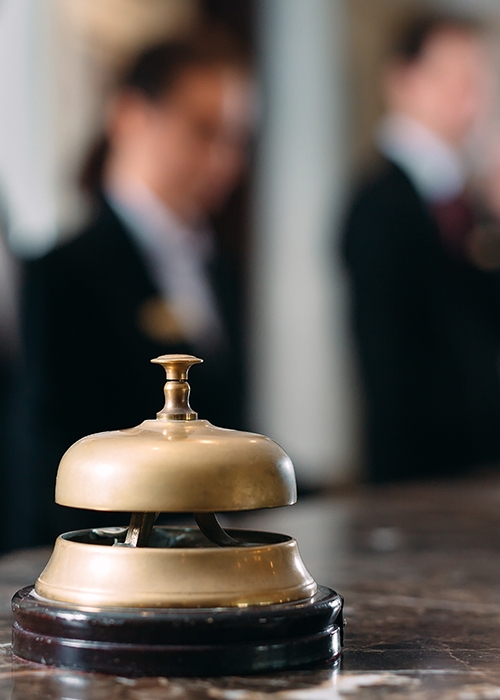
Start your recovery
No waiting rooms, no judgment, just easy streamlined virtual recovery care
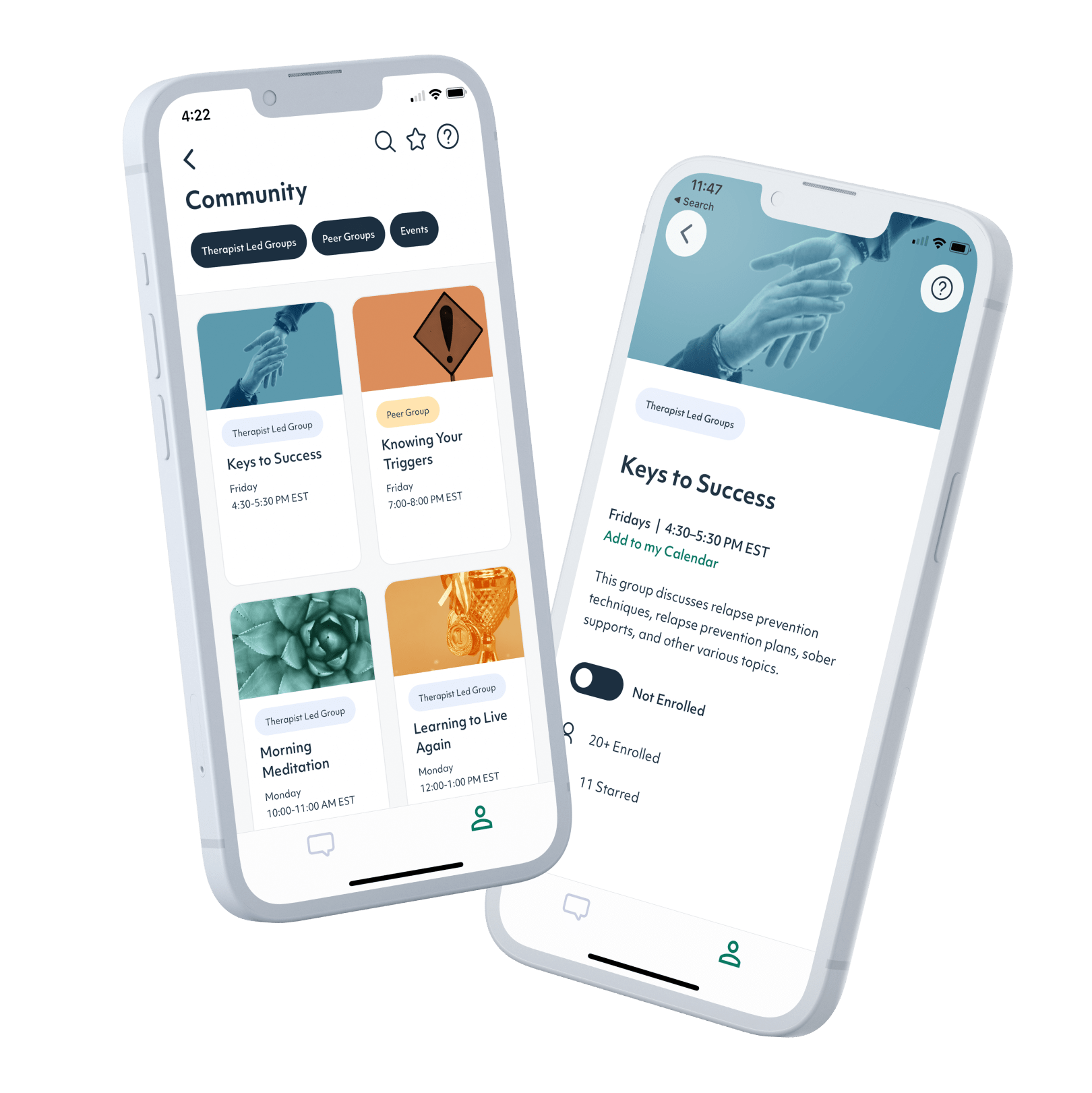
1. Sign up
It only takes a few minutes. Download our app and answer a few questions about your treatment goals, then schedule your first appointment.
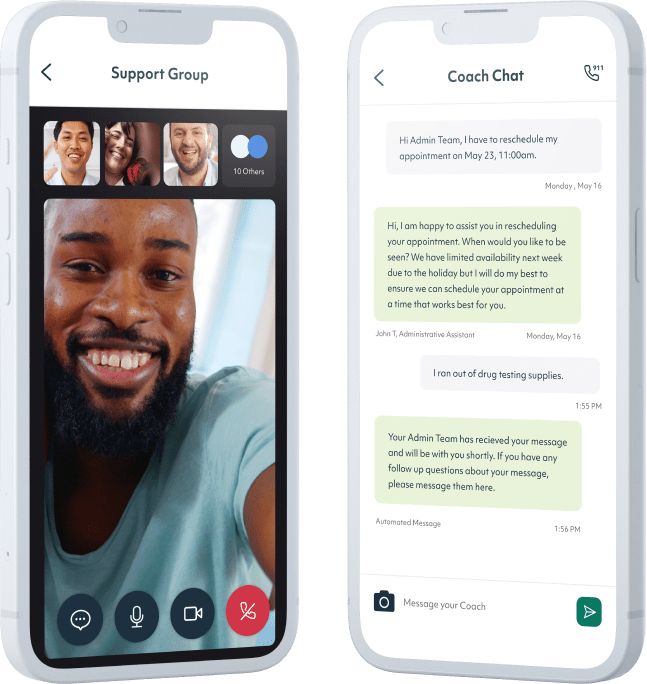
2. Meet with a provider
Meet with a licensed provider via a secure video appointment to set your recovery goals and establish your treatment plan.
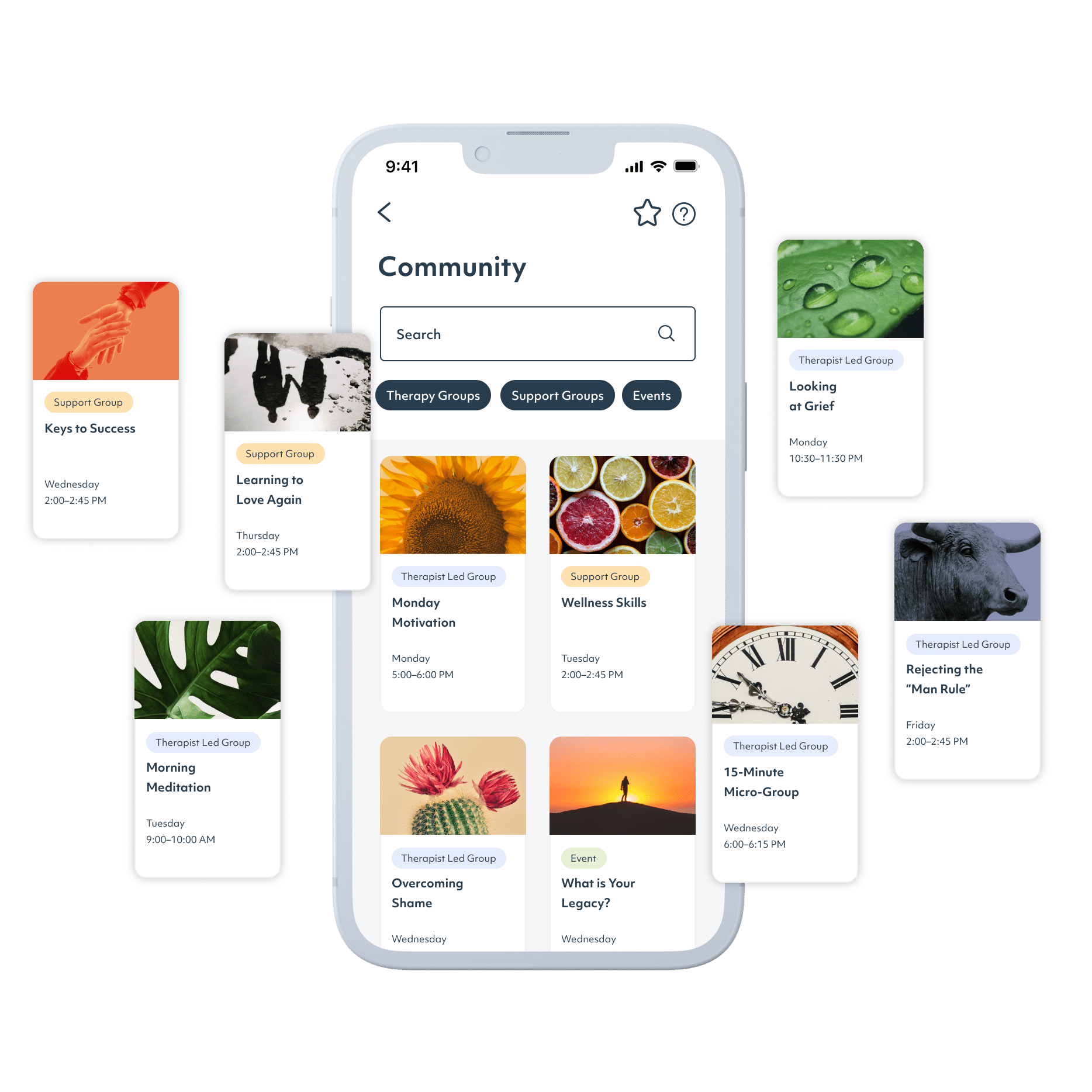
3. Get ongoing support
Shared Follow-up Appointments, recovery groups, and online community provide support and help you build skills to navigate life sober.
No waiting rooms, no judgment, just easy streamlined virtual recovery care
Trusted by major insurance providers
Find your state
Medication-assisted treatment
Citations
1. Bush D.M. & Lipari R.N. (2015) Substance Use and Substance Use Disorder by Industry. Substance Abuse and Mental Health Services Administration (SAMHSA). https://www.samhsa.gov/data/sites/default/files/report_1959/ShortReport-1959.html.
2. Number of Employees in the Hospitality and Leisure Industry in the United States from 2009-2020. Statista.com
3. Larsen, S. (1994) Alcohol use in the service industry. Addiction, 89: 733-741. https://doi.org/10.1111/j.1360-0443.1994.tb00959.x
4. Eade, V. H. (1993) Drug Abuse in the Hospitality Industry. Hospitality Review, 11:2, Article 9. https://digitalcommons.fiu.edu/hospitalityreview/vol11/iss2/9
5. George Washington University Medical Center. (2008, March 25). Hospitality Tops List Of Industries With Highest Rates Of Alcohol Problems. ScienceDaily. www.sciencedaily.com/releases/2008/03/080325083240.htm





